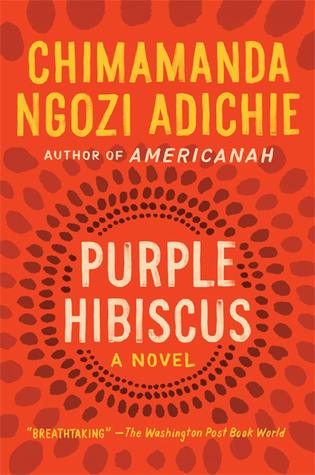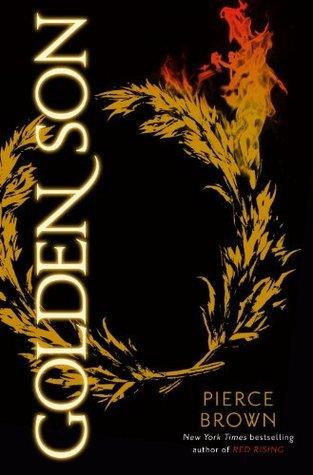Purple Hibiscus by Chimamanda Ngozi Adichie Book Summary
Discover the profound themes and insights of Chimamanda Ngozi Adichie's "Purple Hibiscus" in our comprehensive book summary. Explore key takeaways, in-depth analysis, and an engaging review that highlights the novel's impact and relevance. Perfect for readers seeking a deeper understanding of this powerful story.
Purple Hibiscus Book Summary
Purple Hibiscus by Chimamanda Ngozi Adichie is a powerful coming-of-age novel that explores themes of religious fundamentalism, family dysfunction, and political oppression in post-colonial Nigeria. The story follows fifteen-year-old Kambili Achike as she navigates her father's tyrannical rule and discovers her voice through a transformative visit to her aunt's home. This compelling debut masterfully weaves together personal growth and social commentary, offering readers profound insights into the complexities of faith, freedom, and finding one's identity amidst cultural and familial constraints in contemporary African literature.
Discover deeper insights and enhance your reading experience by exploring The Storied Life of A.J. Fikry Book Summary, Review & Key Insights for a comprehensive understanding of this captivating story.
Purple Hibiscus by Chimamanda Ngozi Adichie - Introduction
I had no idea how deeply a family’s silence could shape a person until I read Purple Hibiscus by Chimamanda Ngozi Adichie. At first, I picked it up because I wanted to dive into something rich in African Literature and hear a fresh voice from Nigeria, but what really surprised me was how the story peeled back layers of a seemingly perfect family to reveal the quiet, painful struggles underneath. It made me rethink how much we often overlook the complexities behind closed doors.
This book is a mix of Fiction, Historical Fiction, and Coming of Age, set in contemporary Nigeria, and it’s packed with vivid details that bring the culture and history to life without ever feeling like a history lesson. It’s 336 pages, which I finished in a few evenings, easily getting lost in the narrative.
If you’re someone who enjoys Literary Fiction that’s both emotional and thought-provoking, or if you’re curious about different perspectives on family, faith, and freedom, this book will really resonate with you. Plus, if you love novels that explore personal growth and the challenges of youth, Purple Hibiscus fits right into the Young Adult and Contemporary genres too.
Honestly, reading it felt like sitting down with a friend who’s sharing something deeply personal, and it made me appreciate the strength it takes to find your own voice in a world that tries to silence you. You should definitely give it a go.
What is Purple Hibiscus About?

"Purple Hibiscus" by Chimamanda Ngozi Adichie follows the life of Kambili, a young Nigerian girl, as she navigates her oppressive family dynamics under her authoritarian father while yearning for freedom and self-expression. The book's main message highlights the struggle for personal and cultural identity amidst the challenges of familial and societal expectations. Key concepts include the impact of religious extremism on family relationships, the quest for liberation and individuality, and the contrasting beauty of resilience and love in the face of trauma.
About Book Author - Chimamanda Ngozi Adichie
Introducing Chimamanda Ngozi Adichie
It’s a genuine honor to introduce Chimamanda Ngozi Adichie, the insightful author of Purple Hibiscus. Chimamanda Ngozi Adichie didn't start out as the storyteller many of us know today; her journey to chronicling the intricate lives within a Nigerian family, grappling with unspoken tensions, began with a keen observation of the world around her, particularly the subtle interplay of tradition and modernity she witnessed growing up.
- What's interesting about Chimamanda Ngozi Adichie is that she initially pursued medicine for a time before fully dedicating herself to writing, a shift that perhaps honed her precise examination of human experience and resilience. Her profound understanding of the complexities of faith, family dynamics, and the weight of silence isn't merely intellectual; it's woven from the fabric of her own upbringing and keen perception. This intimate connection to the themes she explores is what makes her narratives, including later works like Americanah, so resonant. She is uniquely positioned to write about these delicate subjects because she translates personal and cultural truths into universally understood stories of courage and the search for voice.
More Books To Find
Purple Hibiscus - Book Overview
Purple Hibiscus is essentially about a young girl named Kambili growing up in Nigeria under the oppressive rule of her father, who is both wealthy and abusive. The book explores themes of family, freedom, and the struggle to find one’s voice amidst tyranny. It’s like a coming-of-age story, but with a backdrop of political and personal repression that makes it deeply impactful.
Chimamanda Ngozi Adichie wrote this to shed light on the complexities of domestic abuse and the impact of authoritarianism—not just in a political sense but also within the family unit. It’s more than just a critique; it’s a way to show how these dynamics can shape a person’s identity and choices.
What sets this book apart from other stories about family struggles is its rich cultural context and the way it intertwines personal and political narratives. It doesn’t just focus on the trauma; it also highlights the beauty of resilience and the power of love.
One story that really stuck with me is when Kambili experiences the freedom of her aunt’s home, where laughter and joy are abundant, in stark contrast to her own home. It’s a powerful moment that encapsulates the longing for a life free from fear, making you feel the weight of her struggles and the hope for something better.
Key Insights of Purple Hibiscus
1. Family Dynamics: The novel explores the complex relationships within the Achike family, particularly the oppressive nature of patriarchy through the character of Eugene, whose authoritarian rule creates a toxic environment for his wife and children.
2. Religious Hypocrisy: Eugene's devout Catholicism juxtaposes his abusive behavior, highlighting the theme of hypocrisy in faith. This contradiction raises questions about morality and the true essence of spirituality.
3. Coming of Age: Kambili's journey from a stifled, fearful girl to a more assertive young woman illustrates the theme of self-discovery. Her experiences shape her understanding of love, freedom, and identity, ultimately leading her to seek her own voice.
4. Political Context: The backdrop of Nigeria’s political unrest serves as a crucial element, reflecting the broader societal struggles. The family's personal conflicts parallel the national turmoil, emphasizing the impact of external forces on individual lives.
5. The Power of Silence and Voice: Silence is a recurring motif, representing both oppression and protection. Kambili's eventual reclamation of her voice signifies empowerment and the importance of expressing one's truth in the face of adversity.
Who Should Read This Book
"Purple Hibiscus" by Chimamanda Ngozi Adichie is a must-read for those interested in complex family dynamics, cultural identity, and the struggles for personal freedom. Readers who appreciate poignant narratives that explore themes of oppression, resilience, and the impact of political turmoil will find this novel particularly compelling. It resonates with anyone who has experienced the challenges of growing up in a restrictive environment, as well as those interested in African literature and feminist perspectives. Ultimately, it's a powerful story that speaks to the universal quest for self-discovery and liberation.
Read If You Are
- Interested in powerful narratives about family dynamics and personal growth.
- Seeking to understand the complexities of post-colonial Nigeria and its cultural context.
- Looking for a compelling exploration of themes like oppression, freedom, and resilience.
Skip If You Are
- Seeking lighthearted or purely entertaining reads without deeper themes.
- Uninterested in complex family dynamics and cultural issues.
- Preferring fast-paced plots over introspective character development.
Important Takeaways from this Book
-
Start a Gratitude Journal: Each evening, write down three things you are grateful for. This practice fosters positivity and helps shift your mindset away from negativity, enhancing your overall well-being. No special materials are needed—just a notebook or a digital app.
-
Engage in Open Conversations: Schedule a weekly family or friend gathering where everyone can share their thoughts and feelings openly. This builds trust and strengthens relationships, creating a supportive environment. Ensure everyone understands the importance of respect and confidentiality beforehand.
-
Set Boundaries: Identify one area in your life where you feel overwhelmed, such as work or personal relationships. Communicate your limits clearly to those involved. Setting boundaries is crucial for your mental health and helps prevent burnout. Reflect on your needs before discussing them with others.
-
Practice Empathy: Make a conscious effort to listen actively to someone in your life today. Put aside your own thoughts and focus on understanding their perspective. This action deepens connections and promotes understanding, which is essential for healthy relationships. Approach the conversation with an open mind and heart.
-
Volunteer for a Cause: Choose a local organization or community service that resonates with you and dedicate a few hours this week to help. Volunteering not only benefits others but also enriches your own life by providing a sense of purpose and community connection. Research opportunities online or ask friends for recommendations.
Book Review
I picked up "Purple Hibiscus" by Chimamanda Ngozi Adichie expecting a deep dive into family dynamics and the complexities of Nigerian culture, and I got that and so much more. The story revolves around Kambili, a young girl navigating the oppressive atmosphere created by her father, a strict and abusive figure, contrasted with the warmth of her aunt’s household.
One of the book’s strengths is Adichie's lyrical writing style. Her ability to evoke emotion through vivid imagery is remarkable. For instance, the descriptions of Kambili's experiences at her aunt's home are so rich that I could almost taste the food and feel the freedom. The pacing was steady, allowing me to fully immerse myself in Kambili's struggles and triumphs without feeling rushed.
However, there were moments where the narrative felt a bit slow, especially in the middle sections. While I appreciated the depth of character development, I found myself wishing for a bit more action or conflict to keep the momentum going.
Comparing it to other coming-of-age stories like "The Kite Runner," I found "Purple Hibiscus" more introspective and less plot-driven, which may not appeal to everyone.
Overall, I was deeply moved by Kambili’s journey and the themes of resilience and hope. I would recommend this book to anyone interested in rich character development and cultural exploration. However, if you prefer fast-paced narratives, this might not be the best fit for you.
Final Thoughts
If I'm being honest, finishing Purple Hibiscus left me with a deep sense of reflection. Adichie's portrayal of family dynamics and the struggle for personal freedom is both heartbreaking and beautifully written. My overall takeaway is that the quest for identity and autonomy is universal, even within the confines of a turbulent family life.
I'd definitely recommend this if you're someone who appreciates rich, character-driven narratives and can handle themes of domestic abuse and religious fanaticism. However, skip this one if you're looking for a light read or something purely uplifting—it's definitely not that. The thing that surprised me most was how vividly Adichie captures the complexities of love and fear within familial relationships, which will stick with me for months to come.
As for reading it again, I think I’d prefer to recommend the full book over a summary. There's so much depth in her writing that a summary just wouldn't do it justice. Personally, I found the experience of reading it transformative, making me appreciate the nuances of culture and resilience. It’s a book that lingers long after you’ve turned the last page.
Frequently Asked Questions
How long does it take to read Purple Hibiscus?
It typically takes around 6 to 8 hours to read "Purple Hibiscus" by Chimamanda Ngozi Adichie, depending on your reading speed. With 336 pages, you can enjoy the rich narrative and themes at a comfortable pace.
What makes "Purple Hibiscus" different from other books in this genre?
Purple Hibiscus stands out due to its rich exploration of personal and political themes within a Nigerian context. Adichie's lyrical prose and deep character development offer an intimate portrayal of family dynamics, resilience, and the clash between tradition and modernity, making it a unique and impactful read in its genre.
Who is the target audience for Purple Hibiscus
The target audience for "Purple Hibiscus" includes young adults and adults interested in themes of family dynamics, political unrest, and cultural identity. It appeals to readers who appreciate literary fiction that explores complex characters and societal issues, particularly within Nigerian contexts.
Are there any criticisms or limitations of Purple Hibiscus
Critics of "Purple Hibiscus" point to its portrayal of Nigerian society as overly simplistic and its focus on personal trauma potentially overshadowing broader social issues. Some readers feel the characters lack depth, and the narrative could benefit from more nuanced perspectives on cultural and political contexts.
What is the main theme of Purple Hibiscus by Chimamanda Ngozi Adichie
The main theme of "Purple Hibiscus" revolves around the struggle for freedom and self-discovery within a repressive family environment. It explores issues of domestic violence, religious hypocrisy, and the quest for personal identity against the backdrop of political turmoil in Nigeria.
Tags:
Chimamanda Ngozi Adichie, Purple Hibiscus, Purple Hibiscus Author, Purple Hibiscus Book, Purple Hibiscus Book Description, Purple Hibiscus Book Rating, Purple Hibiscus Book Review, Purple Hibiscus by Chimamanda Ngozi Adichie, Purple Hibiscus ISBN, Purple Hibiscus Short Summary

Michel Fisher
Michel Fisher is a passionate fiction enthusiast and book blogger who writes about emotional reads, character-driven stories, and contemporary romance authors that captivate hearts and minds.

Purple Hibiscus
Book Overview
Description
A previously published edition of ISBN 9781616202415 can be found here.Fifteen-year-old Kambili and her older brother Jaja lead a privileged life in Enugu, Nigeria. They live in a beautiful house, with a caring family, and attend an exclusive missionary school. They're completely shielded from the troubles of the world. Yet, as Kambili reveals in her tender-voiced account, things are less perfect than they appear. Although her Papa is generous and well respected, he is fanatically religious and tyrannical at home—a home that is silent and suffocating. As the country begins to fall apart under a military coup, Kambili and Jaja are sent to their aunt, a university professor outside the city, where they discover a life beyond the confines of their father’s authority. Books cram the shelves, curry and nutmeg permeate the air, and their cousins’ laughter rings throughout the house. When they return home, tensions within the family escalate, and Kambili must find the strength to keep her loved ones together.Purple Hibiscus is an exquisite novel about the emotional turmoil of adolescence, the powerful bonds of family, and the bright promise of freedom.
Key Points
Family dynamics shape identity
Characters
Kambili, Jaja, Eugene, Beatrice...
Publisher
Algonquin Books
First Publish Date
10/30/03
Awards
Booker Prize Nominee for Longlist (2004), Orange Prize Nominee for Fiction Shortlist (2004), John Llewellyn Rhys Prize Nominee (2004), Hurston/Wright Legacy Award for Debut Fiction (2004), "Commonwealth Writers Prize for Best First Book Overall (2005)"





